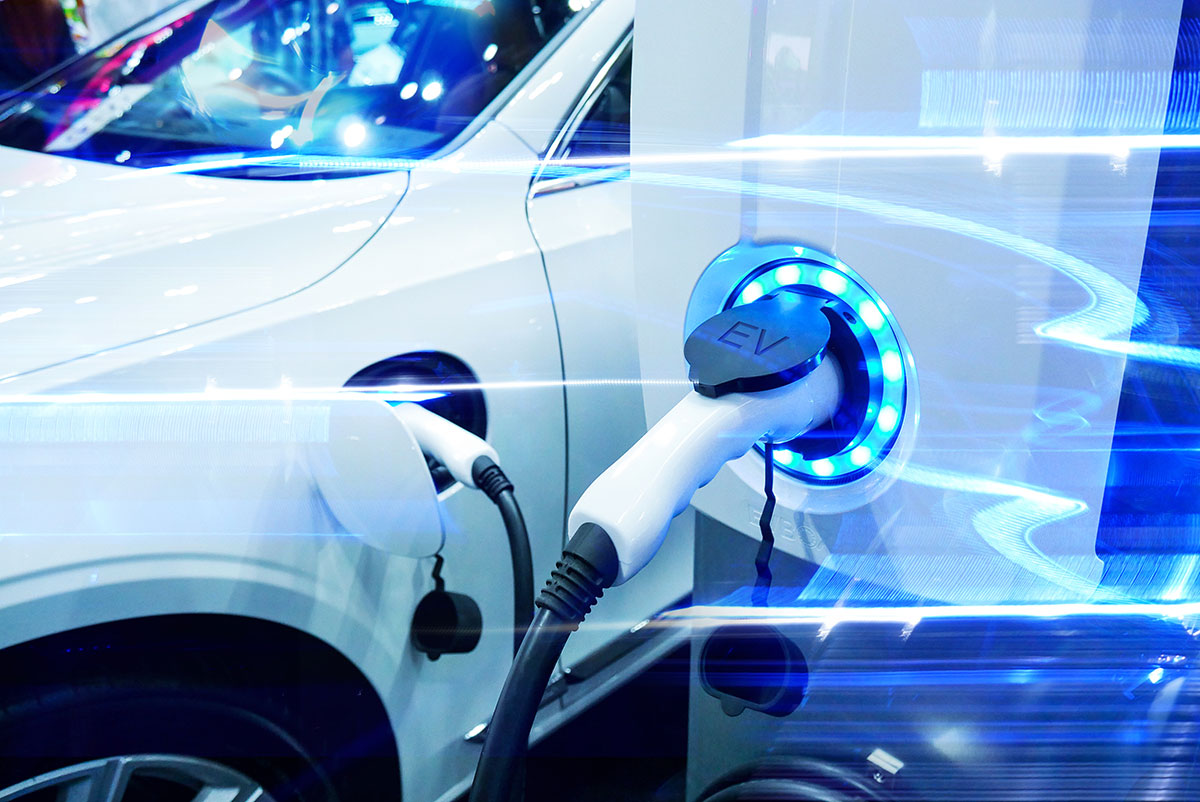The Role of Electric Vehicles in the Future of Transportation

Introduction
The transportation industry is undergoing a significant transformation with the rise of electric vehicles (EVs). With growing concerns about climate change, air pollution, and dependence on fossil fuels, EVs are becoming a key solution to the problems associated with traditional gasoline-powered vehicles. This article explores the role of electric vehicles in shaping the future of transportation, the benefits they offer, the challenges they face, and the potential for their widespread adoption.
1. The Benefits of Electric Vehicles
- Environmental Impact: Reducing Greenhouse Gas Emissions
- One of the primary benefits of electric vehicles is their positive impact on the environment. Unlike conventional vehicles that run on gasoline or diesel, EVs produce zero tailpipe emissions, which significantly reduces their contribution to air pollution.
- The transportation sector is one of the largest contributors to greenhouse gas emissions, particularly carbon dioxide. EVs help mitigate this problem by eliminating emissions from vehicles and reducing the overall carbon footprint of transportation.
- Improved Air Quality
- EVs not only help combat climate change but also improve air quality, particularly in urban areas where traffic congestion and pollution are major concerns. By reducing exhaust emissions, EVs can significantly lower the levels of harmful pollutants such as nitrogen oxides and particulate matter.
- As more people adopt electric vehicles, cities could experience cleaner air and healthier environments, leading to reduced health problems associated with air pollution, such as asthma, respiratory diseases, and cardiovascular conditions.
- Energy Efficiency
- Electric vehicles are more energy-efficient than traditional gasoline-powered vehicles. Electric motors are inherently more efficient at converting energy into motion, with an efficiency rate of around 85-90%, compared to just 20-30% for internal combustion engines.
- EVs require less energy to travel the same distance, making them a more sustainable and cost-effective choice for transportation in the long run. With advancements in battery technology, the energy efficiency of electric vehicles continues to improve, further enhancing their appeal.
2. The Economic Benefits of Electric Vehicles
- Lower Operating Costs
- EVs are generally cheaper to maintain and operate compared to traditional vehicles. They have fewer moving parts, meaning there is less wear and tear, and fewer components that need regular maintenance or replacement.
- Charging an electric vehicle is also more cost-effective than refueling a gasoline-powered car. While the initial purchase price of an EV may be higher, the savings in fuel and maintenance costs can offset the price difference over time.
- Government Incentives and Tax Breaks
- To encourage the adoption of electric vehicles, many governments around the world are offering incentives, rebates, and tax credits. These financial incentives help reduce the upfront cost of EVs, making them more accessible to a wider range of consumers.
- Additionally, some governments provide tax breaks for businesses that invest in electric vehicle fleets or charging infrastructure, helping to promote the use of EVs in both the private and public sectors.
- Job Creation in the EV Industry
- The rise of electric vehicles has created new opportunities for jobs in various sectors, including manufacturing, research and development, and infrastructure. As automakers shift to producing electric vehicles, there is a growing demand for skilled workers to design, build, and maintain EVs and their components.
- The expansion of EV charging networks also provides job opportunities in the installation and maintenance of charging stations. As the EV market continues to grow, it is expected to create even more jobs in the clean energy and automotive industries.
3. The Challenges of Electric Vehicle Adoption
- Limited Driving Range and Charging Infrastructure
- One of the main concerns for potential EV buyers is the limited driving range of electric vehicles. Although advances in battery technology have improved the range of EVs, many models still cannot match the range of traditional gasoline vehicles.
- Charging infrastructure is another challenge. While the number of charging stations is growing, the availability of public charging stations is still limited in many areas, particularly in rural regions. The fear of running out of battery power without access to a charging station—often referred to as “range anxiety”—remains a significant barrier to widespread EV adoption.
- Long Charging Times
- Unlike gasoline vehicles that can be refueled in a matter of minutes, electric vehicles can take much longer to charge, especially on standard home chargers. While fast-charging stations are available, they are still relatively few and far between, and the time it takes to charge an EV can vary depending on the vehicle and charging infrastructure.
- As the demand for electric vehicles increases, there is a need for faster charging technologies and an expanded charging network to meet the needs of EV owners.
- High Initial Purchase Price
- While the operating costs of electric vehicles are lower, the initial purchase price remains a significant obstacle for many consumers. The cost of the battery, which is a major component of the vehicle, contributes to the high upfront price.
- Although the price of EVs has been steadily decreasing, the cost of high-performance models and luxury electric cars still remains out of reach for many consumers. As battery technology continues to improve and economies of scale take effect, the price of EVs is expected to continue to drop, making them more affordable for a larger segment of the population.
4. The Future of Electric Vehicles
- Advancements in Battery Technology
- One of the key factors driving the future growth of electric vehicles is advancements in battery technology. The development of more efficient, higher-capacity batteries will help address issues such as limited driving range and long charging times.
- New battery technologies, such as solid-state batteries, promise to deliver longer driving ranges, faster charging times, and improved energy storage capacity. As these technologies become more commercially viable, the adoption of electric vehicles is expected to increase.
- Growth of Charging Infrastructure
- The expansion of charging infrastructure is critical for the widespread adoption of electric vehicles. Governments and private companies are investing heavily in the development of charging networks, with an emphasis on fast-charging stations and public charging accessibility.
- The availability of charging stations will be a key factor in encouraging consumers to make the switch to EVs. In the future, we may see the development of ultra-fast charging stations that can recharge an EV in just a few minutes, similar to the refueling process for traditional vehicles.
- Integration with Renewable Energy Sources
- The future of electric vehicles is closely linked to the growth of renewable energy sources such as solar and wind power. By pairing EVs with renewable energy, the transportation sector can become even more sustainable.
- Many EV owners already charge their vehicles using solar energy at home, and in the future, EVs could become mobile energy storage units, helping to balance energy grids by storing excess renewable energy during periods of low demand and feeding it back into the grid when needed.
- Autonomous Electric Vehicles
- The integration of autonomous driving technology with electric vehicles has the potential to revolutionize the transportation industry even further. Autonomous EVs could reduce traffic accidents, improve fuel efficiency, and transform the way people travel.
- The development of self-driving electric vehicles is still in its early stages, but as the technology matures, it could reshape urban transportation, making travel safer and more efficient.
5. Conclusion
Electric vehicles are at the forefront of a major shift in the transportation industry. With their potential to reduce greenhouse gas emissions, improve air quality, and provide economic benefits, EVs are set to play a crucial role in the future of sustainable transportation. While challenges such as limited range, charging infrastructure, and high purchase prices remain, advancements in technology and growing investment in the EV sector are helping to overcome these barriers. As electric vehicles become more affordable, efficient, and accessible, they will play an increasingly important role in creating a cleaner, greener future for transportation.





